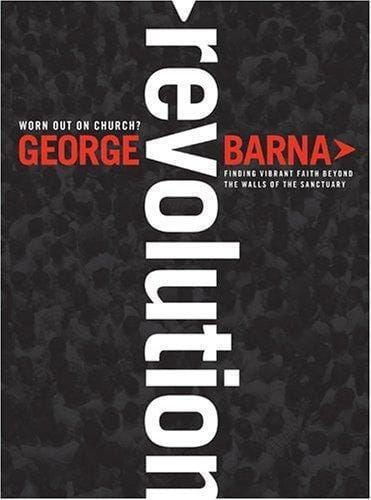Revolution


According to Barna in Revolution, a new group of Revolutionaries is changing the landscape of Christianity in America. “They are not willing to play religious games and aren’t interested in being part of a religious community that is not intentionally and aggressively advancing God’s Kingdom.” This group is faithfully serving God, but many of them are giving up on congregational expressions of church. Barna describes the trend and its implications. This book is excellent for leaders in traditional churches who are trying to figure out why the old model seems to be losing effectiveness. It’s also helpful for those whose initial reaction is to chide this group as being unfaithful. Every church and seminary leader needs to recognize and understand the trends outlined in this book. Barna includes some suggestions on how a local church can appropriately respond to the Revolution. It’s also useful in thinking about fresh expressions of Church. One size no longer fits all, if it ever did. Barna is careful to distinguish between the capital C Church (Church universal) and the small c church (its congregational expression). “The Revolution is designed to advance the Church and to redefine the church.” The Bible, Barna writes, never describes “church” the way we have configured it. There are other options beside the congregational model. “Now it’s virtually impossible to craft a ‘typical’ spiritual pattern, especially among people under the age of forty.” The real issue for many clergy is that the Revolution is potentially career-threatening. “A declining number of professional clergy will receive a livable salary from their churches…To some, this will sound like the Great Fall of the Church. To Revolutionaries, it will be the Great Reawakening of the Church.” It will be disruptive, but Barna hopes it will be “a new day in which the Church can truly be the Church – different from what we know today, but more responsive to and reflective of God.” For many of us, it’s not exactly news. If you fall in this category, this book might help you explain what’s happening to others. It will especially help those who question the commitment of those who are abandoning the congregational church. Some small quibbles:
- I wish this book had given more statistical data for what Barna calls the Revolution. No doubt Barna has it; it’s almost like a chapter was left out.
- It’s sometimes hard to understand what Barna means by a Revolutionary. Although Barna says you can be a Revolutionary and remain within traditional church structures, this isn’t always clear in the book.
- Barna doesn’t reference a lot of other material out there, such as A Churchless Faith by Alan Jamieson.
- It’s predominantly American. I’m from Canada, and I wish he had taken a more global view, since what he’s describing is arguably more pronounced here and in Europe.
- Barna also needs to reflect on the dangers of being Revolutionary. One of them is being reactive and dismissing what God may be doing in traditional church structures.
That being said, this book is a good introduction to a growing trend, and comes from a respected voice in American evangelicalism. As Barna says, we don’t have to like what’s happening, but we can’t afford to ignore it.
More from Amazon.com | Amazon.ca





